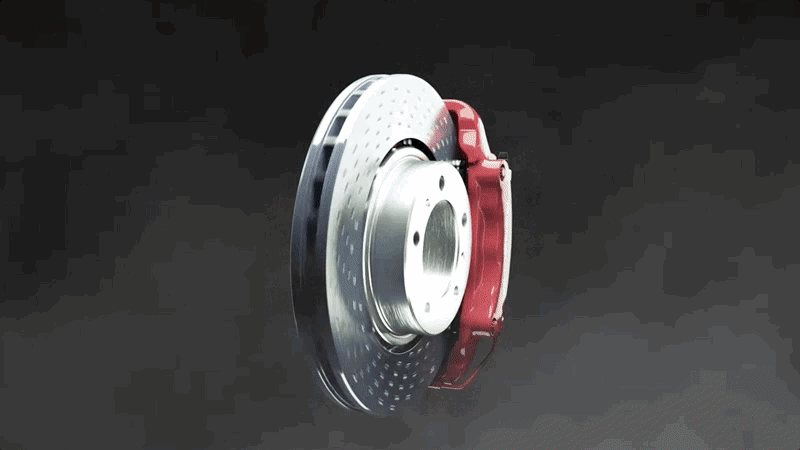When it comes to car safety and functionality, every driver knows that bad brakes are a time bomb to disaster! However, many of us don’t realize the impact of our habits that decreases the life of our brakes.
Generally, brakes tend to last anywhere between 30,000-35,000 miles, however, it largely varies from driver to driver and vehicle to vehicle. Let’s have a look at these five important tips from us that can help your brakes last longer!
Coast Before You Brake
Over speeding is a brake killer and stopping from high speed is the biggest enemy of brakes. Take your foot off the accelerator, and let the vehicle slow down naturally before applying the brakes.
Coasting is not an appropriate technique to be used in every situation, but using it to slow down when you see a stop sign or before you have to turn can have a great impact.
Following this will surely add hundreds or even thousands of miles to the lifespan of your brakes!
Lighten the Load
Overloading the vehicle can significantly decrease the lifespan of brakes. Other than inhibiting the fuel economy, the extra pounds make it harder for brakes to decelerate the vehicle.
Try not to put unnecessary items in the vehicle and consider the weight of aftermarket car products before installing them to avoid any extra addition of pounds.
Widen the Gap, do not Tailgate
Other than being dangerous, tailgating can cause serious wear and tear of the brake! When you follow too close, you are more likely to experience panic braking, ending up in harder slamming of the brakes.
Allow yourself a distance of at least 20 feet to make it easier to use coasting to slow down your vehicle and cut down on brake wear.
Try Engine Braking
Coming downhill from a steep slope is one of the most tempting times to use the brakes. However, rather than using the brakes all the way down, you can try to shift down a gear instead, and use coasting to decelerate your vehicle.
Engine braking is more effective in manual vehicles, whereas for those of you using an automatic transmission, it will work for you too! While using it, be careful to avoid shifting at high speed or very low speed as it can damage the engine, as well as the transmission.
Flush Brake Fluids at Regular Intervals
You get nothing if you work on preserving the brake material yet let the internal components of the braking system corrode away, this is where the bleeding and flushing play their part!
Replacing brake fluids after every 25,000 to 30,000 miles will remove the naturally attracted water and added moisture that lowers the boiling point of the brake fluid hence reducing braking performance.
We hope these tips will help you save huge sums of money that you’ve previously been spending on the repair of your brake system now and then.
Nevertheless, ignoring even the littlest problem with your brakes can put you at a life-threatening risk on the road. To get your brakes professionally inspected, you can contact us online to get a recommendation using our car brake repair near me feature.
Happy Driving!



